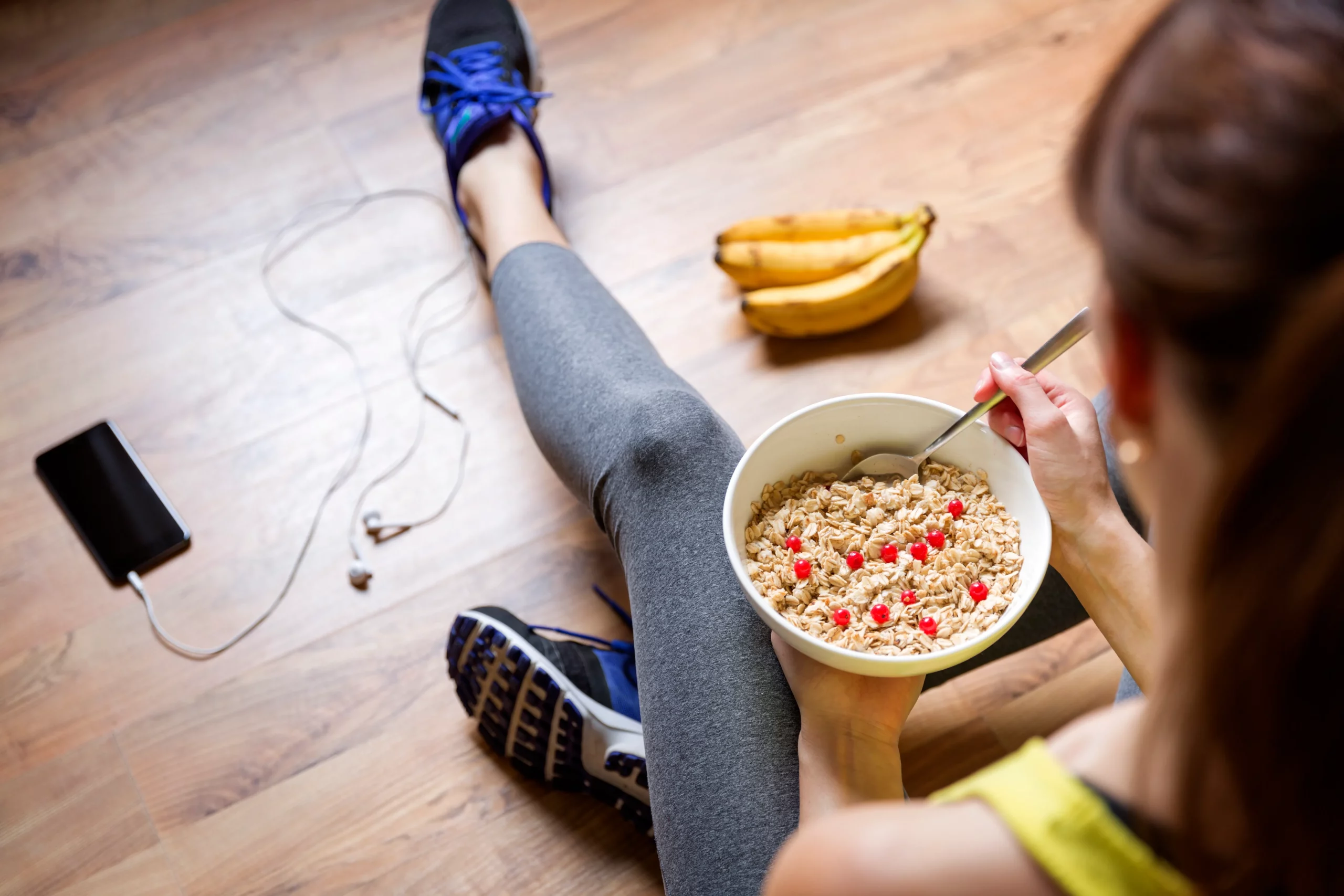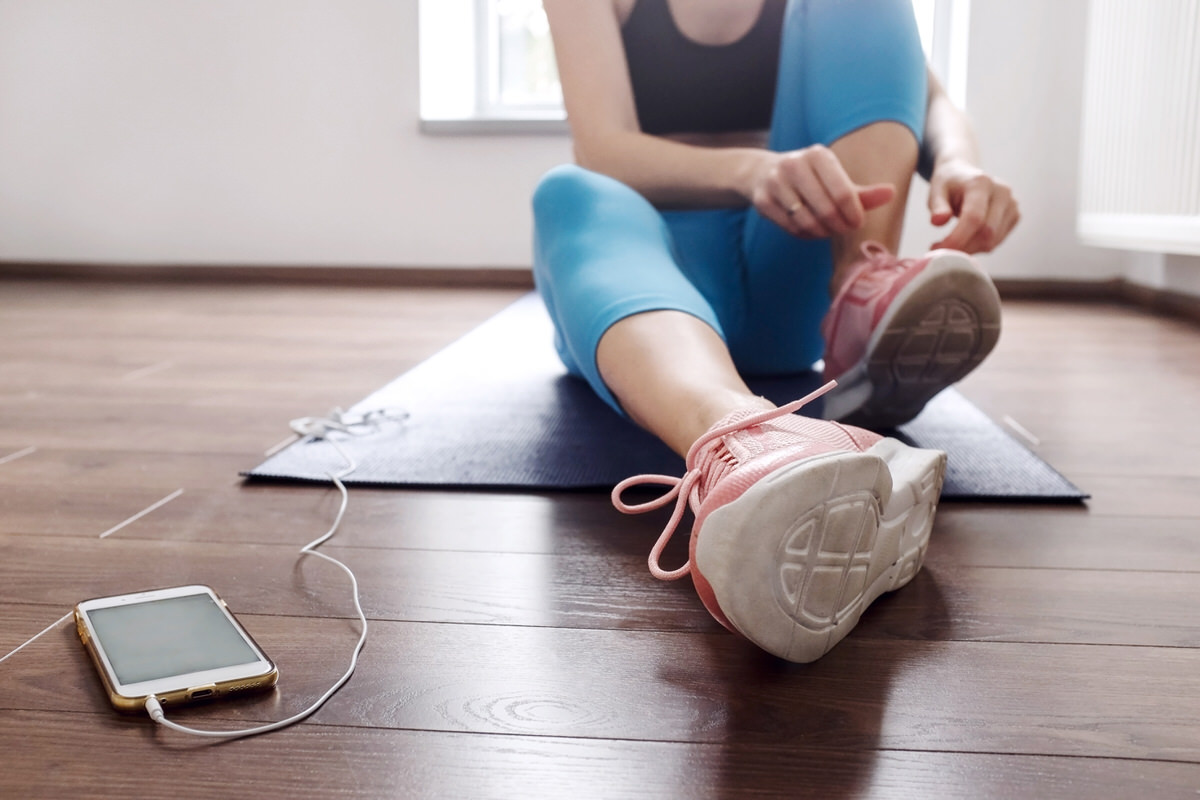Just finished a meal and itching to start your workout? Hold on a second. Knowing the right time to exercise after eating can make a huge difference in your performance and comfort. In this article, we’re breaking down the best times to hit the gym post-meal. You’ll learn how different types of food affect your workout and the key signs to watch for from your body. Let’s get straight to the facts and help you maximize your workouts, meal by meal.”
Contents
How Long Should You Wait to Exercise After Eating?

The wait time to exercise after eating depends on the meal size and workout intensity. Generally, wait 2-3 hours after a large meal, 1-2 hours after a smaller one, and 30-60 minutes after a snack. Listen to your body, and adjust the wait time if you feel full or uncomfortable. Remember, proper pre-workout fueling is key!
Why Should You Wait to Exercise After Eating?
Here are a few reasons why you should wait to exercise after eating:
- Digestion: When you eat, your body needs time to digest the food and absorb the nutrients. During digestion, blood flow is directed towards your stomach and intestines to facilitate the process. Exercising immediately after eating can divert blood flow away from your digestive system, potentially leading to digestive discomfort and even cramps.
- Energy Utilization: After a meal, your body uses energy to break down the food and absorb nutrients. When you exercise, your body also requires energy to power your movements. Exercising too soon after eating may interfere with the efficient utilization of energy, leading to feelings of sluggishness and decreased performance during your workout.
- Blood Sugar Regulation: Waiting after eating before exercising allows your body to regulate blood sugar levels effectively. When you consume carbohydrates, they are broken down into glucose, which provides your muscles with energy. Exercising too soon after eating can cause a rapid increase in blood sugar, leading to fluctuations and potentially negatively impacting your workout.
Effects of Exercising Too Soon After Eating:
Exercising too soon after eating can have negative effects on your body. Here are some reasons why you should wait before hitting the gym after a meal:
- Digestive Discomfort: When you exercise, your body redirects blood flow away from your digestive system and towards your working muscles. This shift can disrupt the digestion process, leading to discomfort such as nausea, bloating, and belching.
- Decreased Energy: Your body needs time to digest and absorb the nutrients from your meal. Exercising immediately after eating can divert energy away from this process, leaving you feeling sluggish and lacking the necessary fuel for a productive workout.
- Blood Sugar Regulation: Waiting for a while after eating allows your body to properly regulate blood sugar levels. When you exercise, your muscles require energy in the form of glucose. By allowing enough time for digestion, your body can effectively utilize the carbs from your meal to provide the energy needed for your workout.
- Performance Impairment: Exercising too soon after eating can feel like carrying extra weight, impairing your ability to perform at your best. It can make you feel weighed down, affecting your strength, speed, and endurance.
Tips for Exercising After a Meal:

When it comes to exercise, timing is everything, especially when it comes to eating. To help you maximize your workout and avoid any potential discomfort, here are some tips for exercising after a meal:
1. Wait It Out:
It’s generally recommended to wait around three to four hours after eating a substantial meal before exercising. This allows your body enough time to digest the food and prevents any digestive discomfort during your workout. However, keep in mind that this time can vary from person to person, so it’s important to listen to your body and adjust accordingly.
2. Opt for Lighter Meals:
If you’re in a rush to fit in a workout after a meal, it’s best to choose lighter, easily digestible options. Avoid heavy, greasy meals that can sit in your stomach and lead to discomfort during exercise. Instead, opt for meals that are rich in healthy carbohydrates, such as whole grain pancakes or bagels with fruit, or a sandwich with whole grain bread.
3. Hydrate:
Staying hydrated is important before, during, and after exercise. Make sure to drink plenty of water before your workout, especially if you’ve just eaten a meal. Hydration helps with digestion and ensures that your body is prepared for the physical activity ahead.
4. Take a Short Walk:
If you’re feeling a bit full after a meal but still want to get some movement in, try going for a short walk. Walking helps stimulate digestion and can be a great way to ease into your workout. Plus, it’s a low-impact activity that won’t put as much strain on your stomach.
Frequently Asked Questions:
Is it OK to exercise right after eating?
When we asked our expert dietitians, they agreed that it varies based on the size and style of the meal. After a full meal, wait 2 to 3 hours. After a snack, wait 30 to 60 minutes.
Is it better to work out in the morning or at night?
For women, morning workouts are beneficial for abdominal fat loss and improved blood pressure. For men, evening exercise leads to greater fat burning and better blood pressure control. Evening exercise enhances strength training benefits, especially for women.
Can I workout after 30 minutes of eating?
Wait at least 30-45 minutes to exercise after eating. For larger meals, wait even longer. For optimal athletic performance, have low-fiber, low-fat snacks like a banana with peanut butter or whole-grain toast.

Hello, I’m Ravindra. Over the years, I’ve immersed myself deeply into the world of fitness and health, transforming both my body and mind. Writing has allowed me to share my journey, insights, and expertise with those just starting out and seasoned fitness enthusiasts alike. Beyond just routines and diets, I believe in inspiring others to adopt a holistic approach to well-being.
